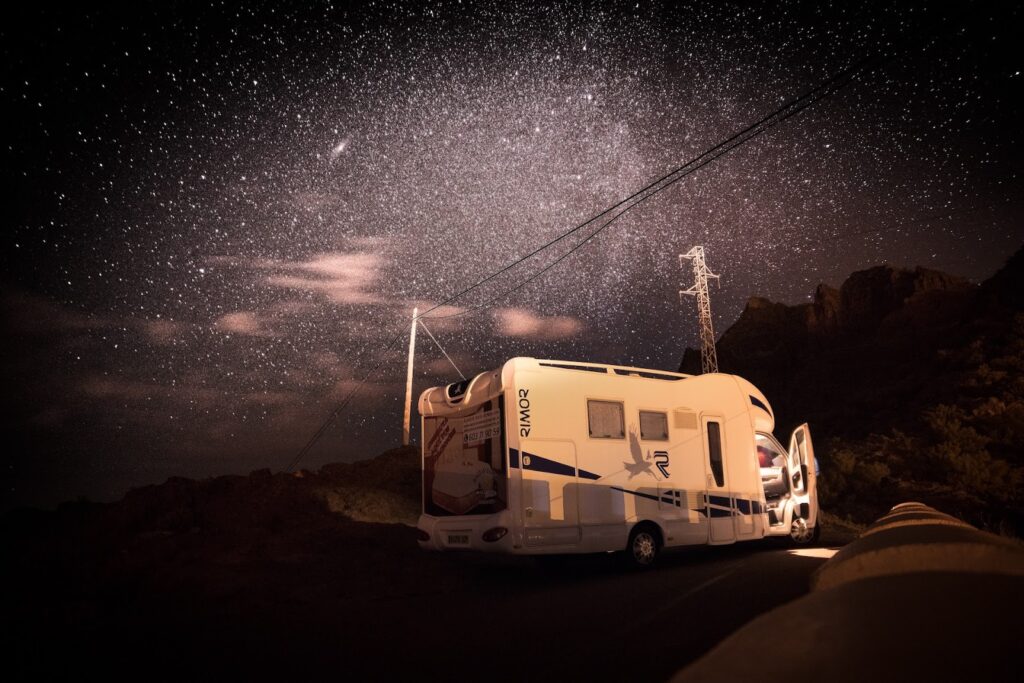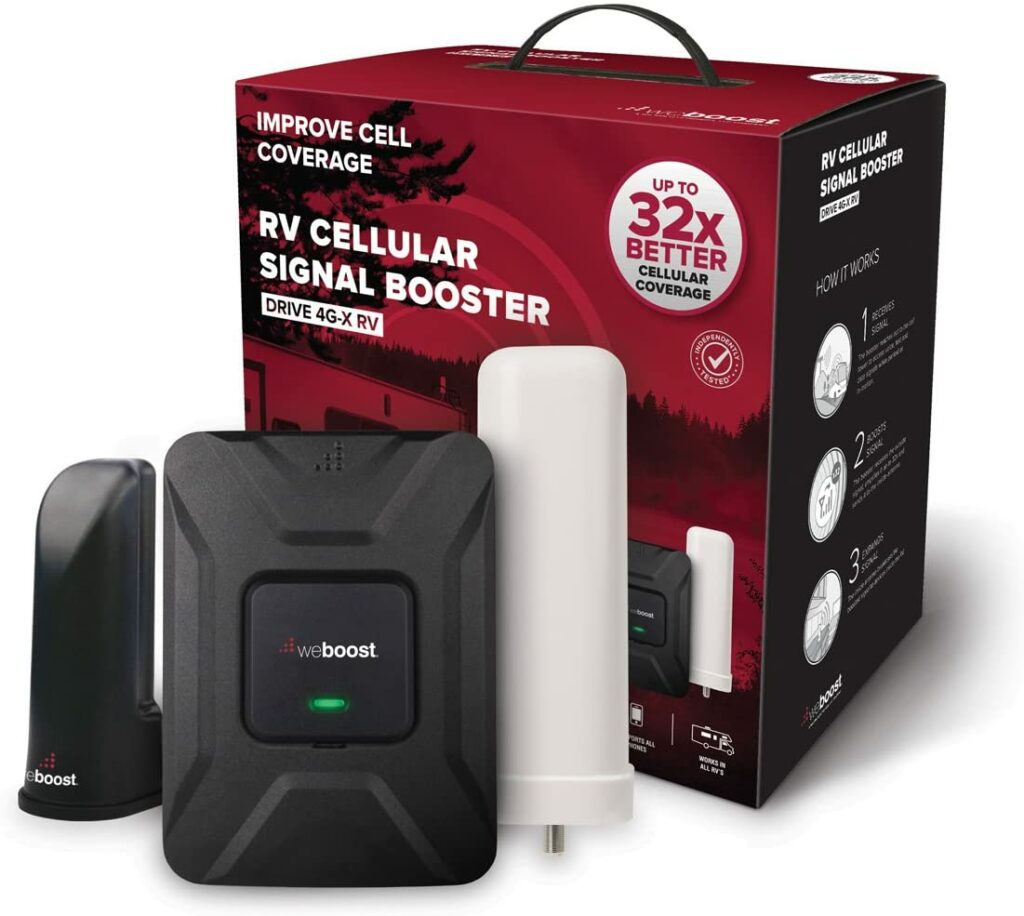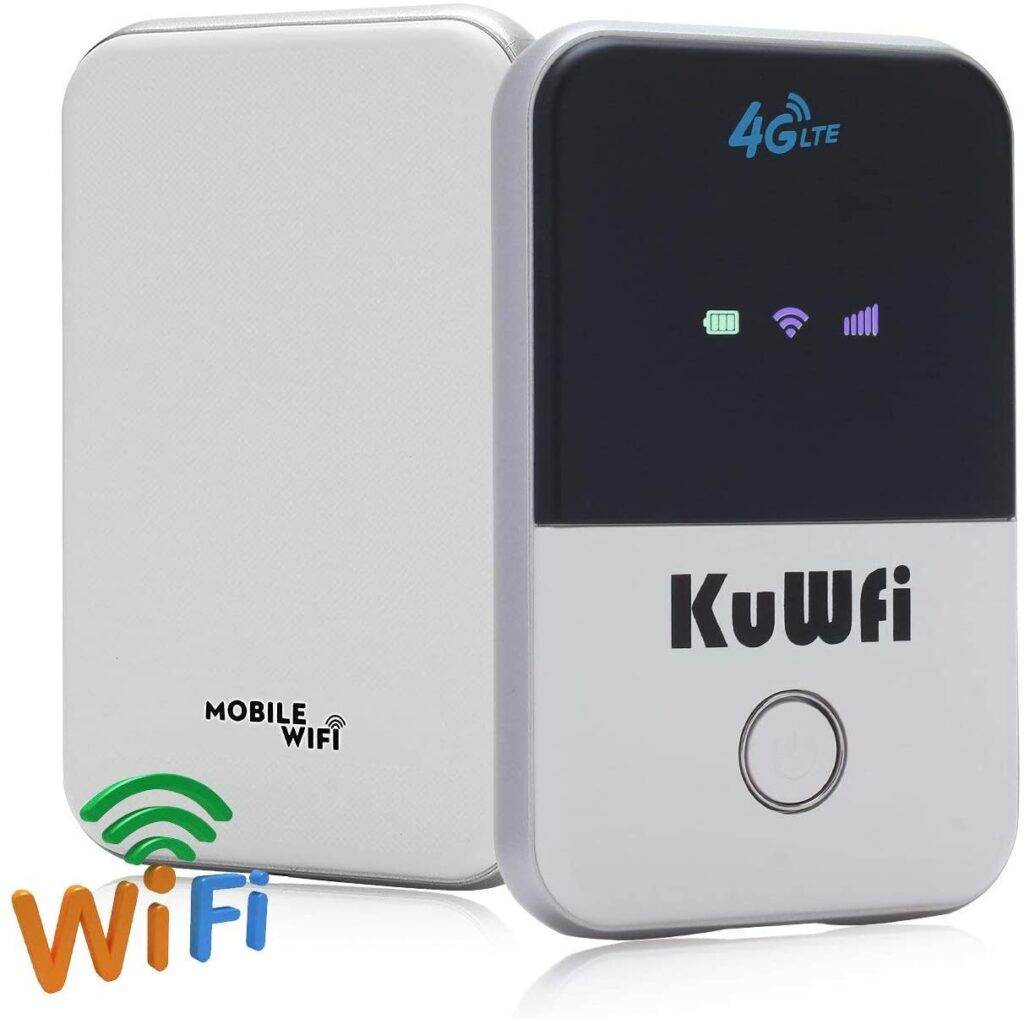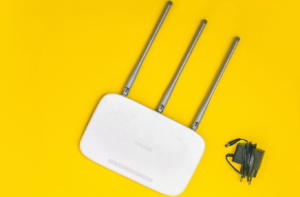When you’re on the open road, there’s nothing quite like the freedom of being able to go anywhere your heart desires. However, that sense of freedom can quickly disappear when you find yourself without an internet connection.
Just because you’re on vacation doesn’t mean you have to sacrifice your internet connection! In this article, we’ll discuss your options for staying connected while RVing. So read on, and hit the open road with peace of mind!
Recommended Product: KING DTP4950 DISH Tailgater Pro Bundle – Premium Portable/Roof Mountable Satellite TV Antenna
What is RV WiFi?
RV WiFi is a type of wireless internet that you can use in your recreational vehicle. It gives you the ability to stay connected while on the road and access the internet for things like checking email or streaming videos. Like your usual WiFi networks, you can use the internet on smartphones, computers, tablets, and other WiFi-enabled devices and gadgets.
In short, RV WiFi is a way to get internet access while you’re on the road. It can be achieved in a few different ways: through cellular networks, public WiFi, or satellite. We will discuss these below.
No products found.
Cellular Network
The first option for getting online while RVing is through a cellular network. This type of connection is available almost everywhere in the U.S. It doesn’t require any special equipment or installation. You simply need an unlocked smartphone and a data plan from your provider.
Benefits of Cellular Network
The big benefit of using a cellular network is that it’s available pretty much everywhere. So you don’t have to worry about finding a hotspot or searching for an RV park with WiFi. And, as we mentioned earlier, there’s no installation required – simply turn on the hotspot of your phone, and you’re good to go.
Drawbacks of Cellular Network
The main drawback of using a cellular network is that it typically comes in limited plans and can be pretty expensive. Also, speeds may vary depending on your location. So if you’re in a rural area, for example, you may not get the same speeds as you would in a city.
Public WiFi
If you’re looking for a more affordable option than cellular data, public WiFi may be the way to go. This connection is available in most airports, restaurants, hotels, libraries, and other places where people gather. They are sometimes also available in RV parks.
Benefits of Public WiFi
One of the biggest benefits of public WiFi is that it’s mostly free. You don’t have to pay anything to use it, and you can usually find a hotspot pretty easily in specific types of locations. You also don’t need any sort of extra equipment for using public WiFi.
Drawbacks of Public WiFi
The downside of public WiFi is that speeds can vary depending on the location and how crowded it is. So, if you’re in a busy airport or restaurant, you may not be able to get the same speeds as you would in a rural area. They can also be potentially unsafe compared to the other variations of WiFi.
Satellite Internet

The satellite option for RV WiFi is a good choice if you’re looking for reliable, high-speed internet. You can access the internet from pretty much anywhere, and there are no data caps or restrictions.
Recommended Product: KING DTP4950 DISH Tailgater Pro Bundle – Premium Portable/Roof Mountable Satellite TV Antenna
Benefits of Satellite Internet
The big benefit of the satellite is that it’s always on – so you don’t have to worry about losing your connection. It also has a decent speed of several megabits, making it an excellent option for streaming videos or playing online games.
And since there are no data caps, you can use as much bandwidth as you need without having to worry about running up a bill.
Drawbacks of Satellite Internet
One downside of the satellite is that it can be expensive if you go over your monthly data limit. It also requires a bit more setup and equipment than the other options, so it may not be ideal for everyone.
Global Internet
If you’re looking for an RV WiFi option that’s available anywhere in the world, global internet is your best bet. This variation of the internet is especially useful for international travelers.
Benefits of Global Internet
One of the biggest benefits of the global internet is that it’s accessible from anywhere – so you don’t have to worry about losing your connection in the middle of nowhere.
Drawbacks of Global Internet
The downside of the global internet is that it can be expensive and might not be as well performing as the regular cellular data.
Decide How Much Internet You will Need
Before you can decide which type of RV WiFi is best for you, you need to first figure out how much internet you actually need. This will depend on what activities you plan on using the internet for when traveling.
Minimal Internet Needs
If you only need the internet for checking email or browsing the web, a basic cellular data plan or public WiFi may be all you need. You don’t need a lot of bandwidth for these activities, so even a small data plan or public WiFi should be enough.
Mid-range Internet Needs
If you’re someone who likes to stream videos or play online games occasionally, then you’ll likely need more bandwidth than what’s offered with a basic data plan. In this case, it might be better to go with a combination of a better cellular data package along with the public WiFi.
High-demand Internet Needs
If you need the internet for work or to stay connected with your family and friends, and for your work, then you’ll likely need the highest performing RV WiFi option possible. This would include either a high-end cellular data plan or a dedicated RV WiFi system based on Satellite or Global internet.
Installing the RV WiFi

Once you’ve decided which type of RV WiFi is best for you, it’s time to start installing it. This process will vary depending on what type of equipment you choose, but here are some general tips:
Cellular Network
If you’re going with a cellular network, you don’t need anything except an unlocked phone and a SIM card from the provider of your choice. You can just buy a data package and start browsing.
Public WiFi
If you’re using public WiFi, you will also don’t need to go through any lengthy installation. All you need is to find a hotspot and connect to it. This can be done by searching for the network name or SSID on your device and entering the password when prompted.
Satellite Internet
To set up satellite internet, you’ll need a satellite dish installed on your RV as well as a satellite modem. You can usually purchase these devices from your provider or an online retailer. In the case of a satellite, you might require assistance from a professional for the installation.
Global Internet
Global internet works a bit differently than the other options. Rather than having a satellite or cellular dish installed on your RV, you’ll need to purchase a global hotspot device. This device connects to the internet either through cellular data or WiFi and then provides it to all of your devices. You might be able to set it up on your own with the user guide.
Equipment You Can Use to Improve Your RV WiFi
Even if you have the best RV WiFi option available, there may be times when you still struggle with getting a good signal. In these cases, you can use some supplemental equipment to help boost your connection:
Cell Phone Signal Boosters

One way to improve your RV WiFi signal is by using a cellphone signal booster. These devices work by amplifying the signal from your cellular network and projecting it into your RV. This can be a great option if you only need a limited amount of data or if you’re in an area with poor coverage.
WiFi Extenders

Another way to improve your RV WiFi signal is by using a WiFi extender. These devices work by receiving the signal from your RV’s WiFi router, amplifying it, and then projecting it back out. It can be a great option if you have multiple devices that need to connect to the internet at the same time.
Pocket Router

If you’re looking for a more permanent solution, you can also install a mobile hotspot router or pocket router. These routers allow you to create your own private WiFi network in your RV. So you can connect multiple devices at the same time.
They are small in size, and most of them come with a battery that will last for several hours. This is an excellent option if you have multiple people in your RV, and everyone wants to be connected at the same time.
Conclusion
If you want to stay connected while traveling, there are many options available for RV WiFi. You can choose from different providers or types of technology that will suit your needs and budget. Once you have decided on the kind of connection best suited for you, you are ready to go and enjoy your travels without having to worry about staying connected.



